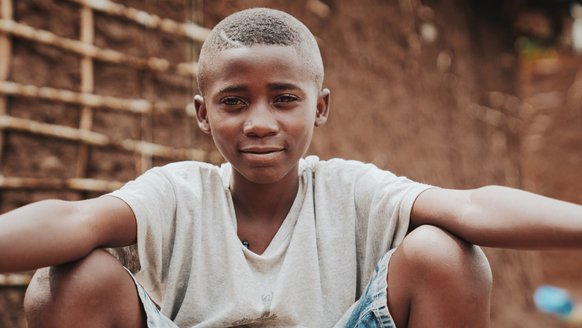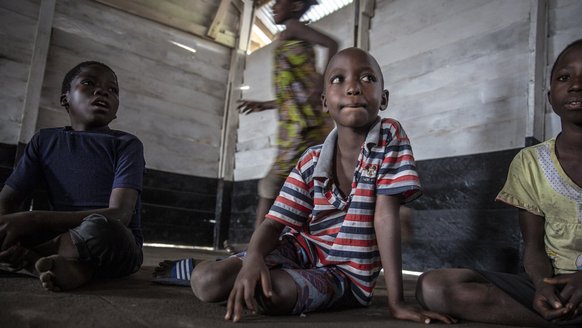Peace Sessions: Putting Psychosocial support to the fore
Sept. 24, 2019
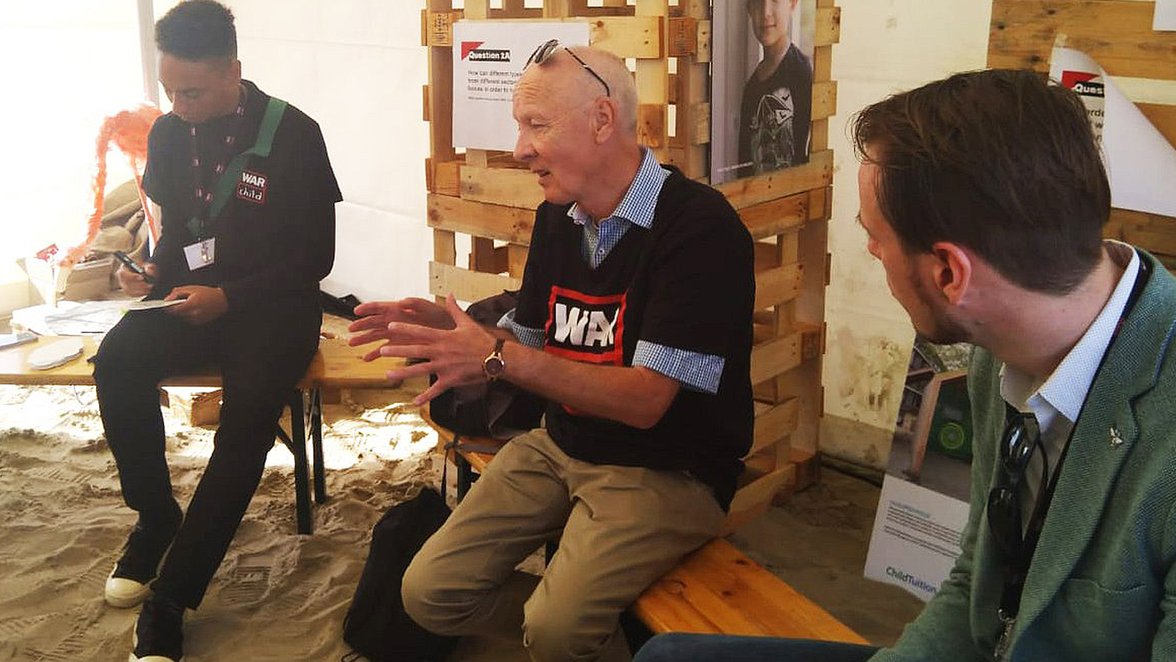
Developing recommendations
Leading mental health and humanitarian experts came together this week to explore the topic of acting early with psychosocial support in emergency settings. The War Child ‘Peace Sessions - Expert’ event saw participants work to develop recommendations to take to next month’s International Conference on Mental Health and Psychosocial Support in Crisis Situations in Amsterdam.
Expert analysis
Several policy recommendations emerged from the group discussions - including calls for stronger collaboration between NGOs and the private sector, improved coordination on the ground and more investment in psychosocial support training for non-professionals.
Each discussion was led by an expert moderator - including Christine Pirenne, Humanitarian Aid lead at the Netherlands Ministry of Foreign Affairs (MFA) and mental health expert John Mahoney (WHO, Department of Health UK), who now serves as our Country Director for the Occupied Palestinian Territory.
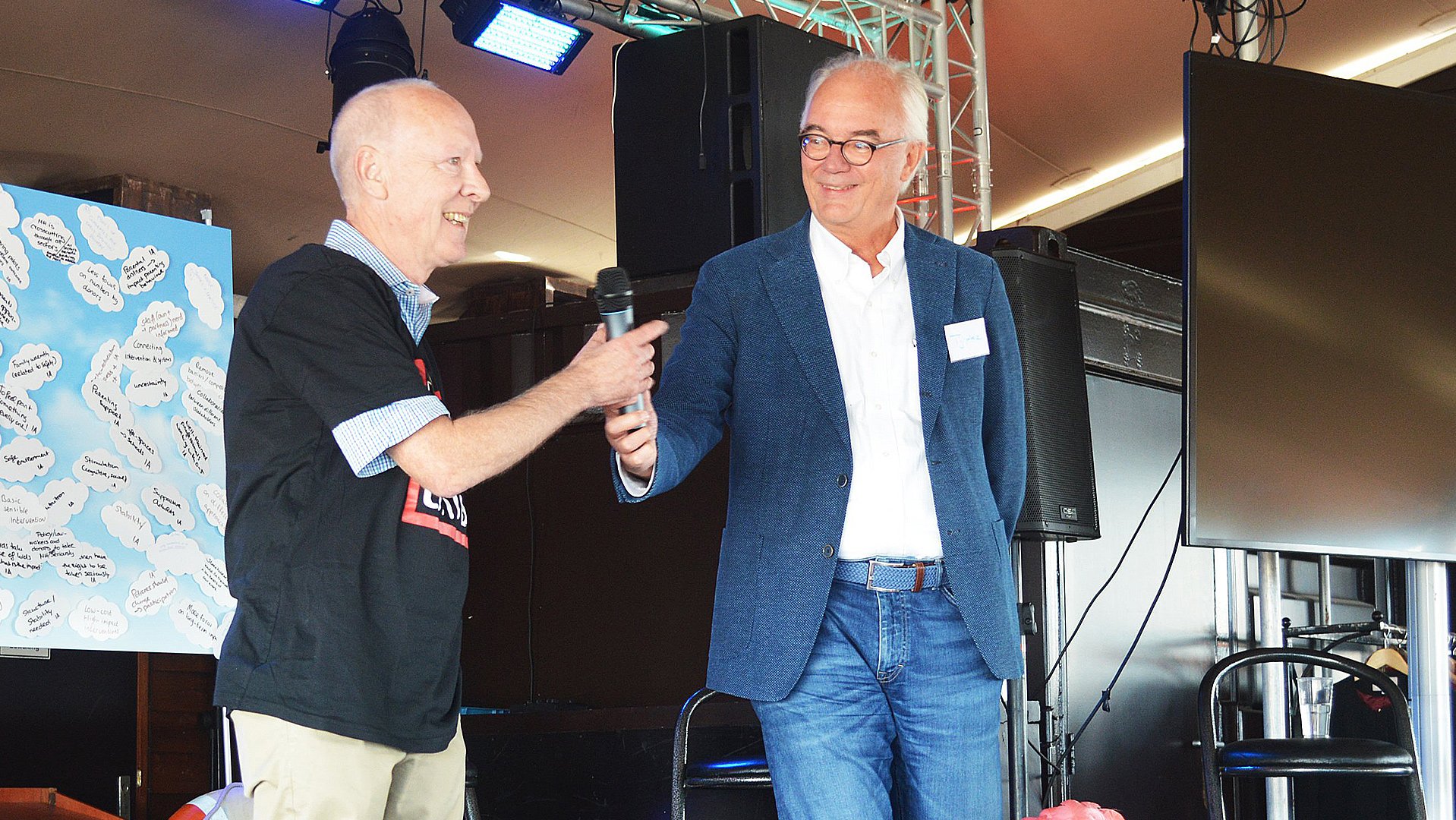
One of our moderators: mental health expert John Mahoney
Photo: War Child
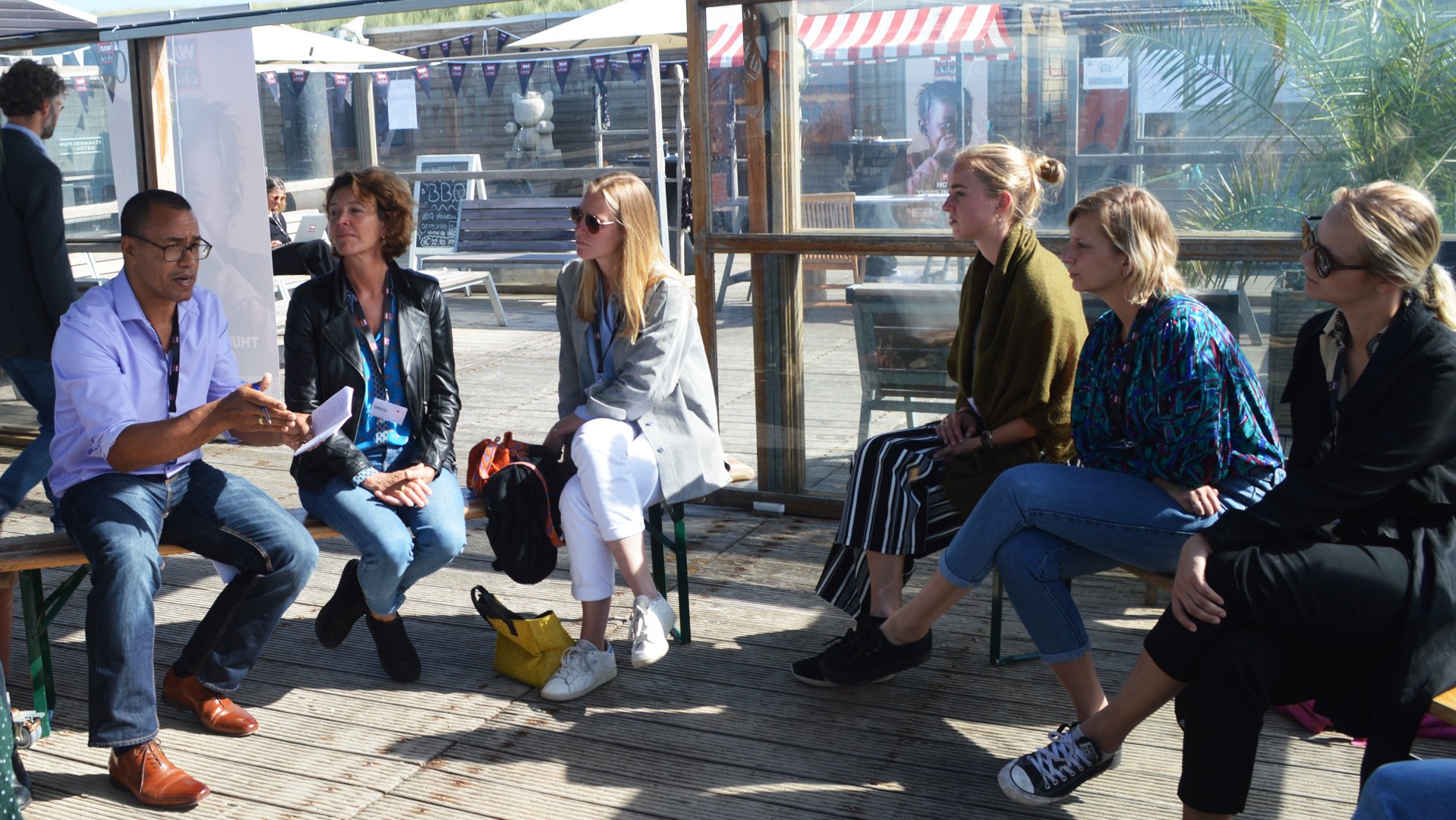
Eamonn Hanson leading a discussion at the Peace Sessions
Photo: War Child
A concerted effort
War Child advocacy manager Eamonn Hanson led a discussion which explored how different humanitarian sectors can work together more closely for increased impact. Suzan Lemont, European Regional Representative and Founder of the Netherlands Expressive Arts Association, suggested that part of the answer lies in the development of a robust coordinating apparatus - or managing body - on the ground.
“We need to start preparing now for future needs,” Lemont said. “We currently have some cooperation between the different agencies and stakeholders, but it’s often limiting. Two agencies team up and they shut everyone else out.”
“Yet what we need is for all of these lines to come together and for people from different areas - be that food, infrastructure, money or mental health care - to be on a team that is ready to provide a consolidated emergency response.”
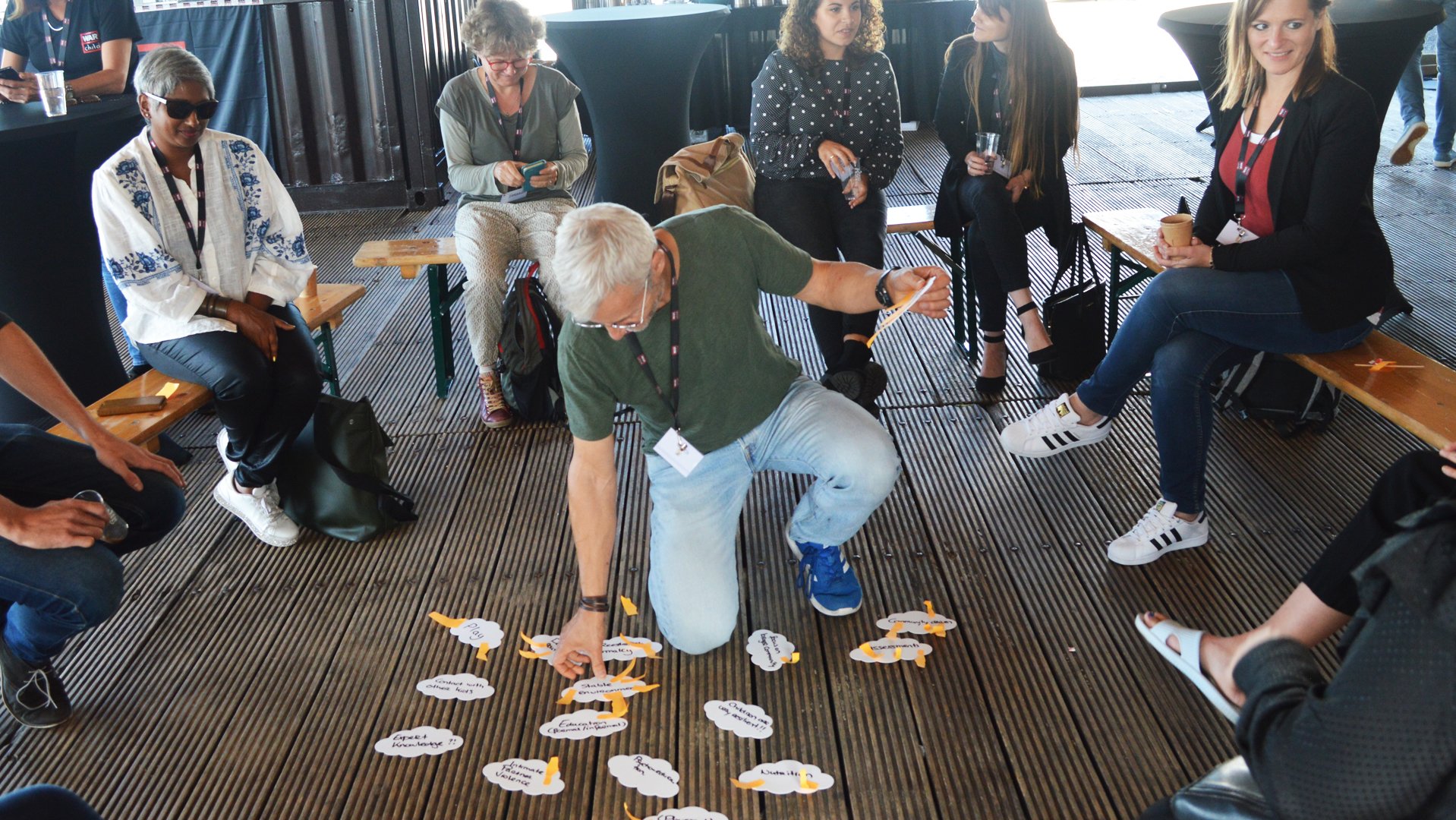
Clynical Psychologist and researcher Kenneth Miller leading a session on child development factors
Photo: War Child
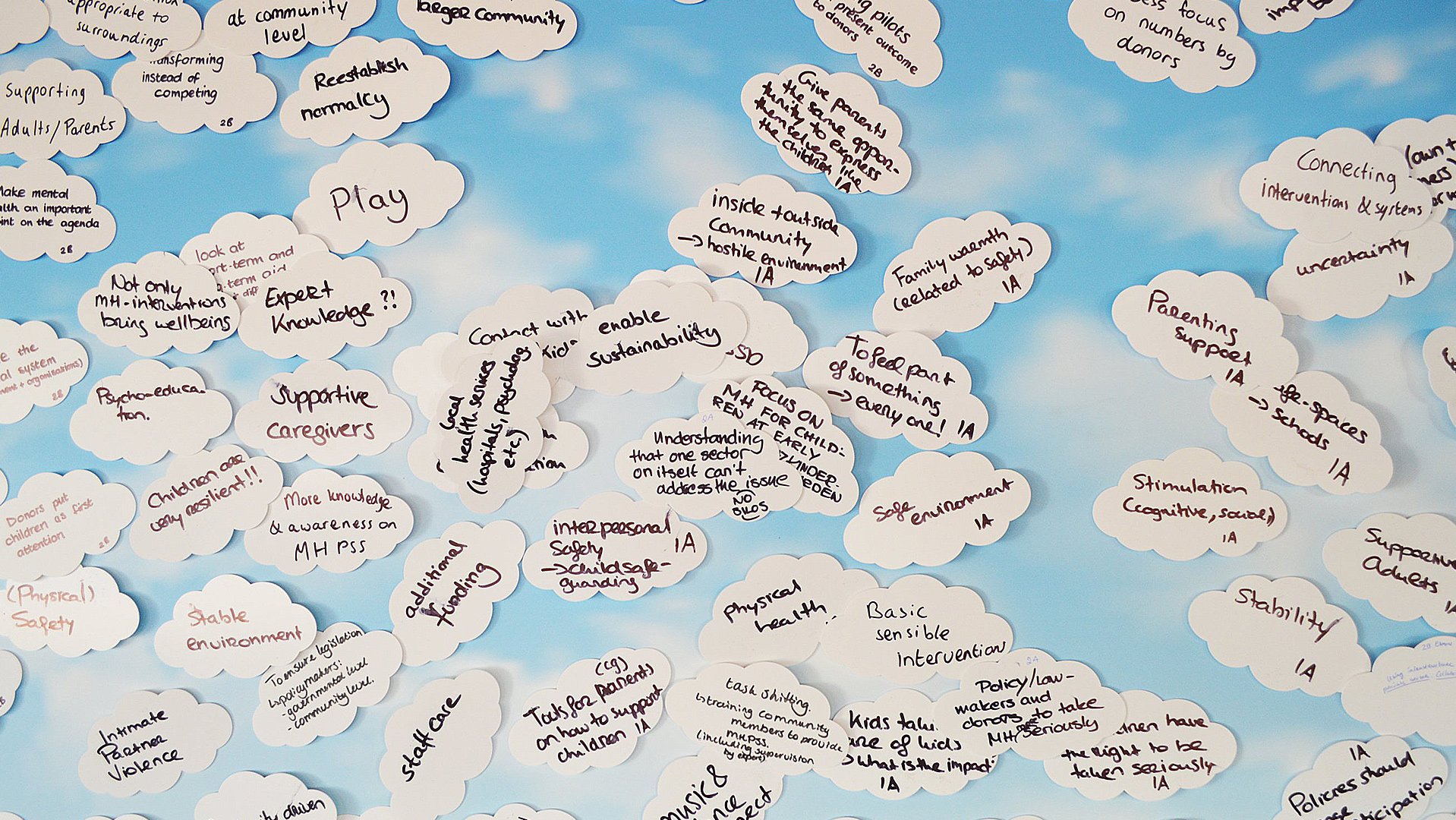
Outcomes of the brainstorm sessions
Photo: War Child
Beyond the child
The importance of the child’s wider world was cited by clinical psychologist and War Child researcher Kenneth Miller Ph.D. Key child development factors - including supportive adults, a stable environment, physical safety, nutrition and education - have to be addressed in tandem with psychosocial interventions, according to this group.
“It’s been a recurring theme,” explained Miller. “Current efforts to support children affected by war focus on children affected by war. Yet findings show time and time again that we need to tackle the wider support network - particularly the high rates of chronic stress amongst parents and caregivers.”
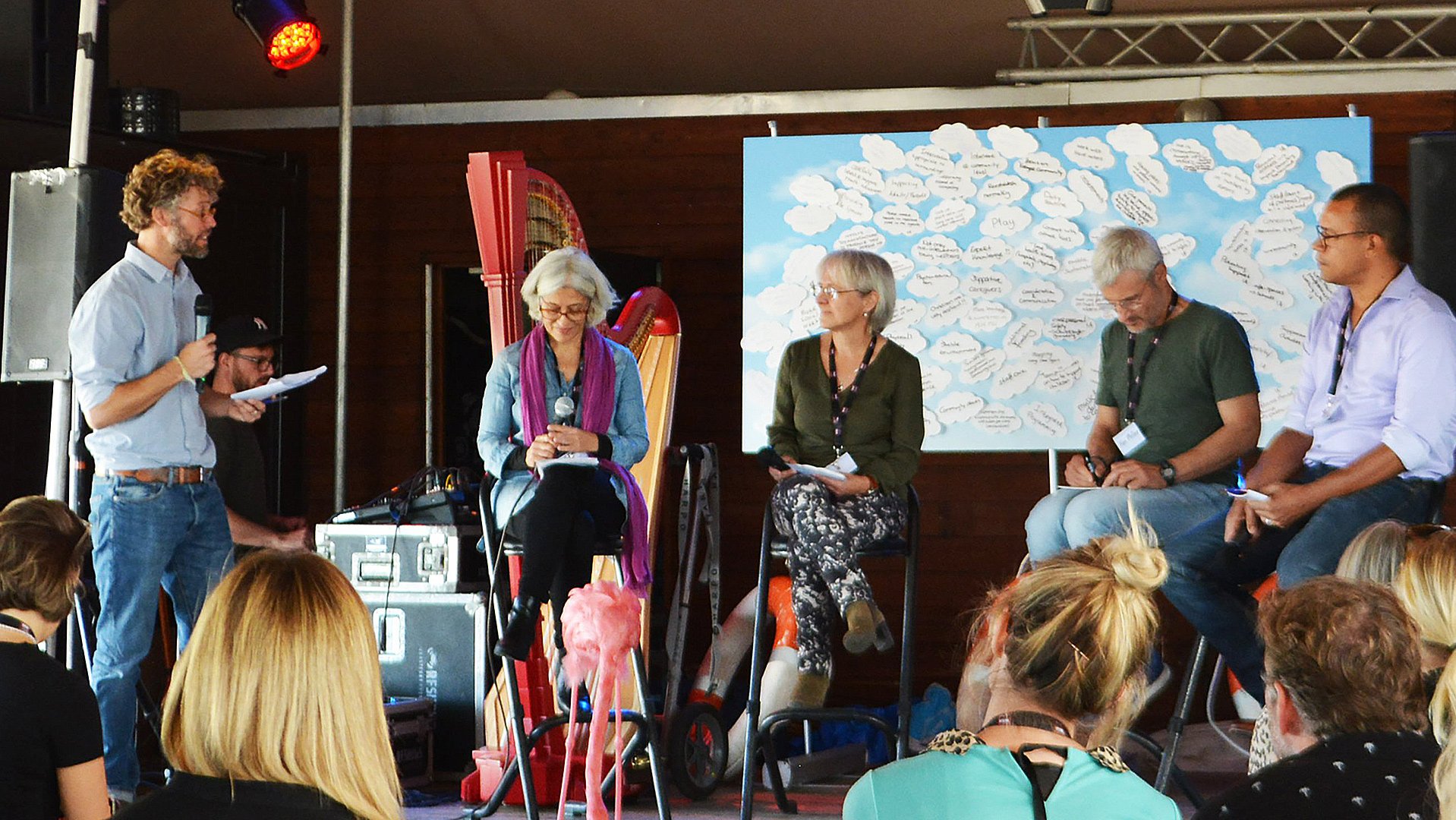
Director of Researh & Development Professor Mark Jordans giving the day's key recommendations
Photo: War Child
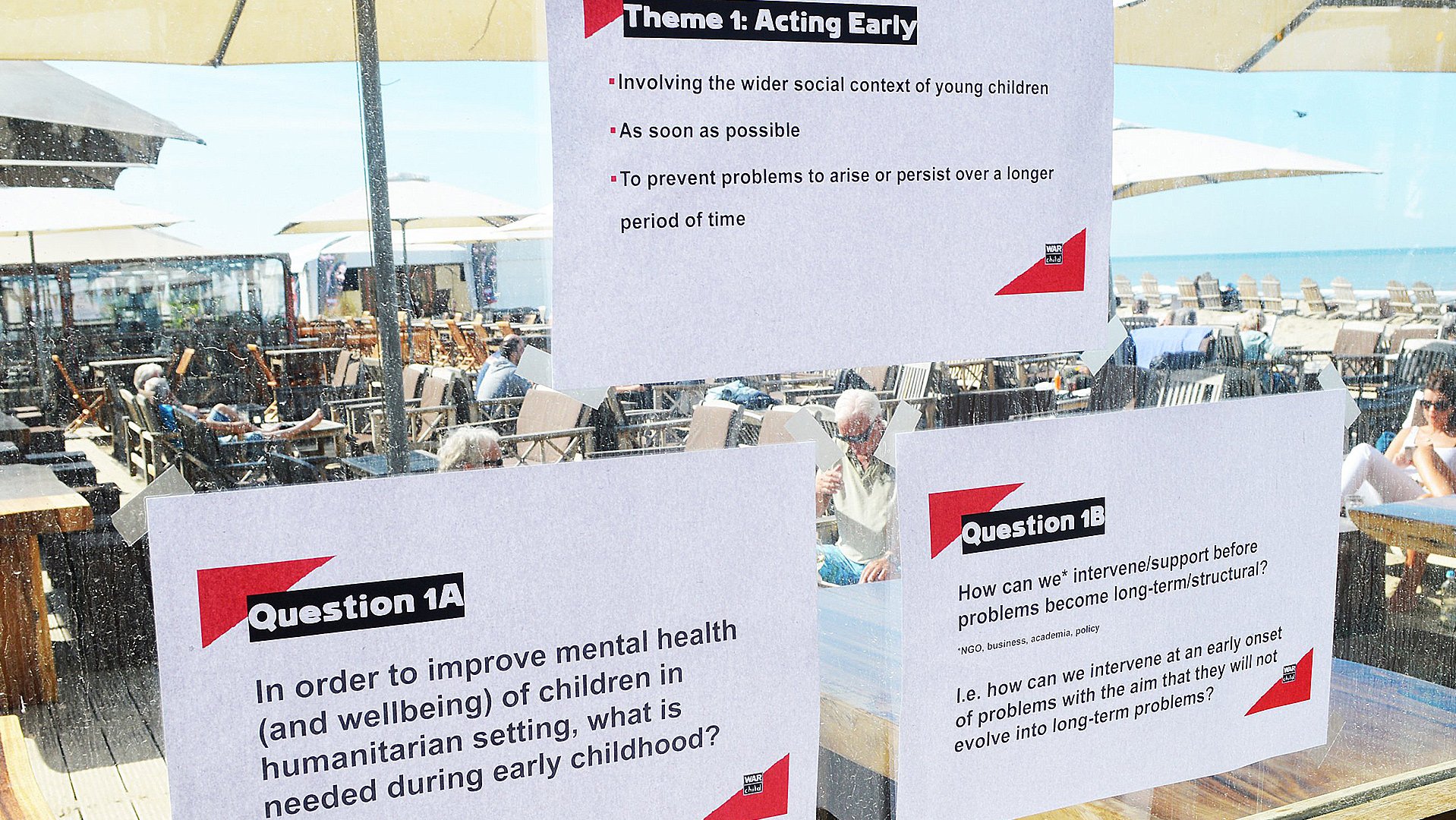
Acting Early theme conversation topic and questions
Photo: War Child
Key recommendations
Professor Mark Jordans - our Director of Research and Development - brought the event to a close with a synthesis of the day’s key findings. Professor Jordans will lead War Child’s delegation to the October event - where he and his team will present six key recommendations:
- De-fragmentation and coordination of humanitarian organisations and actors
- Increased efforts to adopt a genuine community approach
- Sufficient workforce - adequate people trained for psychosocial support to take place
- A ‘systems approach’ to engage with both children and their direct environment i.e. parents, family and caregivers
- Increased focus on prevention - act early and invest money in children’s mental health in the immediate aftermath of crisis
- Research - the need to synthesise existing evidence to push this topic to where it should be - and create space for new research projects. What works and how it works
Led by the Dutch Minister for Foreign Trade and Development Cooperation, The International Conference on Mental Health and Psychosocial Support in Crisis Situations will take place in Amsterdam on 7 and 8 October 2019.
